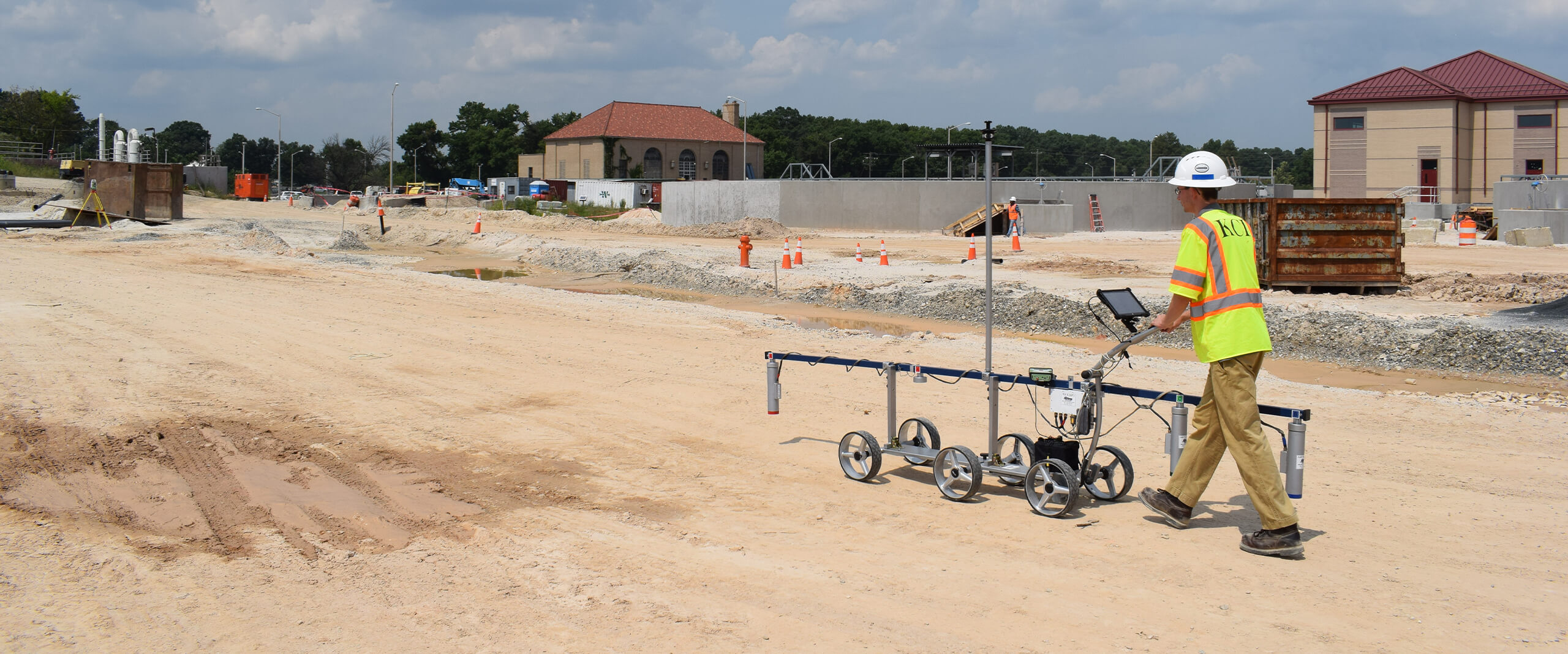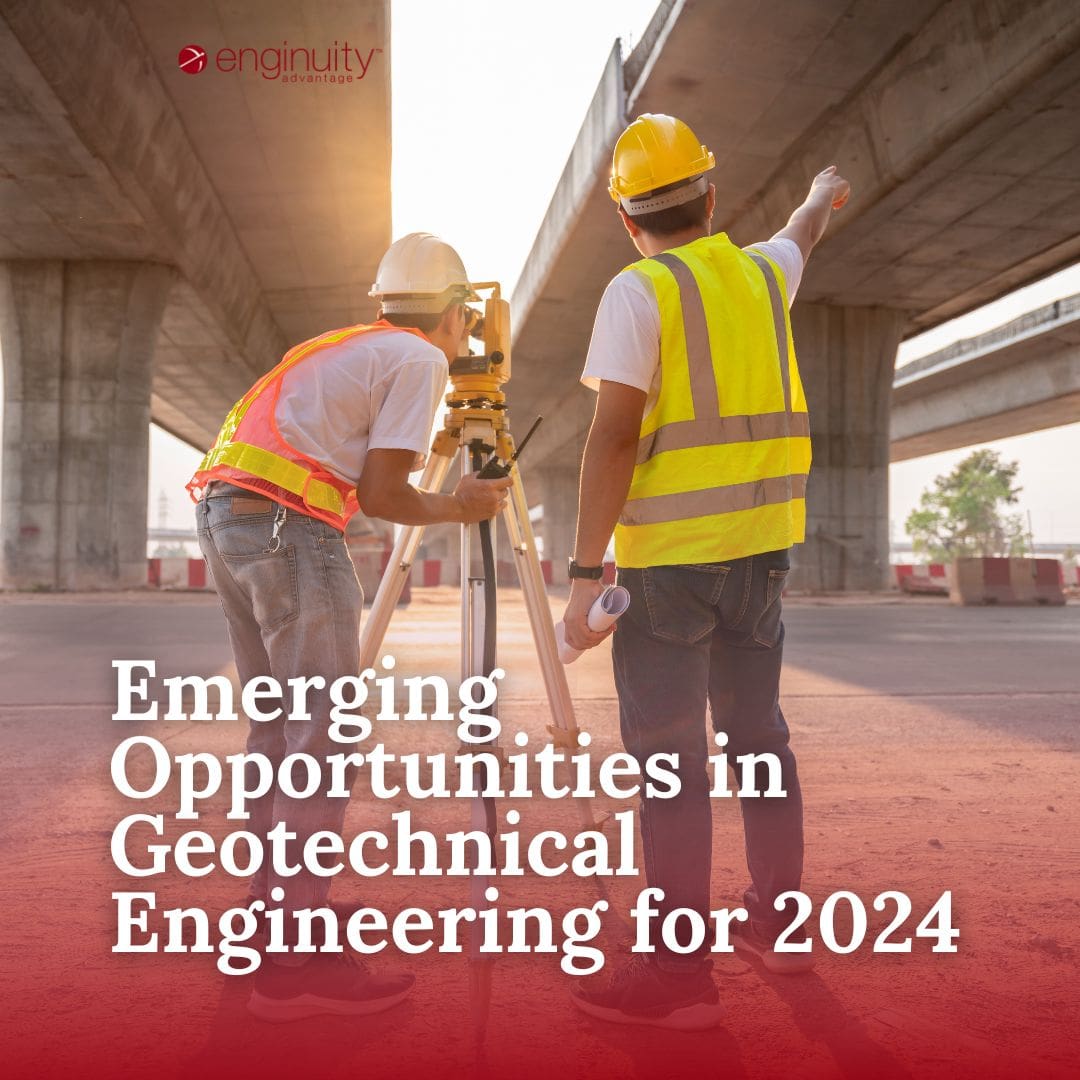Choosing the Right Geotechnical Engineers for Your Next Large-Scale Project
Wiki Article
The Interdisciplinary Approaches in the Geotechnical Industry: Bridging the Gap Between Design, Geology, and Environmental Science for Optimum Task Results
The integration of design, geology, and environmental science within the geotechnical industry is not merely helpful; it is critical for accomplishing optimal job end results. What techniques might emerge to facilitate this vital cooperation and improve the efficacy of geotechnical methods?Importance of Interdisciplinary Cooperation
The significance of interdisciplinary collaboration in the geotechnical market can not be overstated. Reliable geotechnical projects require the assimilation of varied experience from different areas, consisting of design, geology, and environmental science. This partnership makes certain that all facets of a task are considered, bring about comprehensive solutions that address intricate obstacles.Interdisciplinary collaboration cultivates technology by enabling specialists to share insights and techniques that might not be evident when functioning in seclusion (engineer of record). By leveraging the strengths of numerous self-controls, groups can determine prospective risks, enhance design processes, and improve the sustainability of geotechnical jobs. Additionally, such cooperation promotes an all natural understanding of site-specific problems, which is essential for exact evaluation and decision-making.
The intricacy of geotechnical jobs demands a coordinated technique to analytic. When engineers, geologists, and ecological researchers work together, they can create a cohesive strategy that straightens technical requirements with ecological factors to consider and regulatory compliance. This harmony not just improves project results yet also adds to the lasting resilience of framework. Inevitably, interdisciplinary collaboration is crucial for advancing best methods and attaining quality in the geotechnical sector.
Key Roles of Each Technique
Collaboration amongst various disciplines is not simply valuable; it is essential for the successful execution of geotechnical projects. Each self-control-- design, geology, and ecological science-- plays a distinct yet interconnected role that contributes to project effectiveness and sustainability.Geotechnical engineers are mainly in charge of developing structures and guaranteeing architectural stability. They assess dirt and rock homes to analyze load-bearing capabilities, giving crucial data for risk-free building methods. Their know-how allows the solution of innovative solutions to complicated obstacles.

Environmental researchers analyze the prospective influences of construction on ecosystems and water sources. They carry out ecological evaluations and develop mitigation techniques to lessen unfavorable impacts. By integrating ecological factors to consider, they make sure compliance with policies and advertise sustainability throughout the job lifecycle.
Study of Successful Assimilation
Successful integration of geotechnical techniques can be exhibited with various case research studies that highlight the performance of teamwork in dealing with intricate design difficulties. One noteworthy instance is the construction of the Hong Kong-- Zhuhai-- Macau Bridge, where a joint strategy involving geotechnical design, geology, and ecological science was crucial. Designers and geologists worked in unison to evaluate the seabed conditions and enhance the structure style, making certain security and decreasing ecological impact.One more impactful case is the renovation of incline security in the San Francisco Bay Location, where an interdisciplinary group combined geotechnical analysis with environmental assessments. By incorporating hydrological studies and geological surveys, the team effectively identified potential landslide threats and applied efficient mitigation procedures, enhancing security and sustainability.
Moreover, the redevelopment of Brownfield sites often needs a multidisciplinary strategy. In one case in Chicago, partnership among geotechnical engineers, ecological researchers, and urban organizers led to the effective removal of polluted dirt, permitting the safe transformation of the website into an area park. These instance researches show that interdisciplinary collaboration not just addresses technical obstacles yet likewise cultivates ingenious options that benefit both areas and projects.
Obstacles in Multidisciplinary Projects

Moreover, working with schedules and process amongst different groups can be troublesome, specifically when each discipline has one-of-a-kind task landmarks and deliverables. This misalignment can result in hold-ups and enhanced expenses. The challenge of source allotment additionally impends big; making certain that customized know-how is readily available at essential points needs careful planning and foresight.
Finally, governing compliance poses an additional substantial difficulty. Each self-control might deal with various governing frameworks, and aligning these demands to meet job purposes can be complicated and taxing. Attending to these difficulties necessitates strong management and reliable communication methods to foster collaboration and make sure that multidisciplinary groups function cohesively in the direction of shared goals.
Future Trends in Geotechnical Practices
As the geotechnical sector progresses, emerging fads are reshaping techniques to attend to the difficulties encountered in multidisciplinary jobs - geotechnical engineers. One considerable pattern is the raised assimilation of innovative modern technologies, such as expert system and maker discovering, into geotechnical evaluation and design. These innovations improve predictive modeling and threat assessment, allowing engineers to make more informed decisions throughout the project lifecycle
Additionally, the fostering of electronic doubles and real-time surveillance systems is ending up being extra prevalent. These devices assist in ongoing assessment of soil problems and architectural efficiency, enabling for prompt treatments when problems occur.
Conclusion
To conclude, the combination of design, geology, and ecological scientific research is important for achieving optimal results in the geotechnical sector. Interdisciplinary collaboration cultivates advancement, boosts analytic capabilities, and straightens technical demands with environmental sustainability. Effective study highlight the benefits of this technique, while acknowledging the challenges dealt with in multidisciplinary jobs. Looking ahead, embracing these collaborative practices will certainly be vital for browsing future patterns and progressing the field of geotechnical engineering.The integration of engineering, geology, and ecological scientific research within the geotechnical sector is not just advantageous; it is imperative for accomplishing geotechnical engineers optimal job results. Reliable geotechnical projects require the integration of varied experience from different areas, including design, geology, and environmental science.Navigating the intricacies of multidisciplinary jobs in the geotechnical sector provides several considerable difficulties.As the geotechnical industry progresses, emerging trends are reshaping techniques to address the difficulties dealt with in multidisciplinary projects. Geotechnical engineers are significantly teaming up with ecological researchers to guarantee that projects straighten with sustainability goals and comply with governing requirements.
Report this wiki page